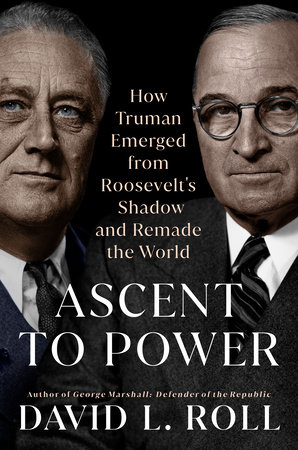Take Five: Doc Filmmaker Lynn Novick Talks About “College Behind Bars”
November 9, 2019

After co-directing a succession of award-winning documentaries with Ken Burns, Lynn Novick stepped forward to direct one on her own, with Sarah Botstein as producer, and Burns stepped back to be their executive producer. Filmed over four years at maximum- and medium-security prisons in New York state, College Behind Bars focuses on the Bard Prison Initiative. Twenty years ago, when funding was slashed for college-in-prison programs, undergraduates at Bard College set one up themselves. It launched in 2001 with 16 students; since then, 500 have gone through the program and been released from prison—and fewer than 4 percent have returned. (Washington University runs a similar program.) Next up for Novick? A documentary about the history of crime and punishment in America. Because this opened her eyes.
In the doc, one of the inmates talks about how different it is when he is treated as a student, which made me think about the role of student. Is there an inherent dignity, even power, in the act of learning?
I taught in this program before Sarah and I made the film, and I felt this palpable love of learning and intellectual engagement that was far deeper than anything I had known at my fancy private school [Yale University]. The intellectual interrogation that was going on—there’s a huge power in that. It is inherently liberating to engage and challenge your own ideas and others’ ideas and have your thinking evolve and articulate what you believe and put it on paper—all the things many of us who have had a privileged background take for granted. A professor from MIT teaches in the BPI program, and in his first class—the students had the reading assignment ahead of time—he came in prepared to discuss, and a student raised his hand and said, “I noticed that the footnote on page 52 contradicted the material on page 73—could you talk about that?” He’s taught at Columbia, Dartmouth, Williams, MIT, and he said, “I’ve never in all these years had students who read the footnotes.” In BPI, nobody’s on the phone. No one is distracted. Education is a lifeline for them, a way out of the situation they’re in, both metaphorically and actually. Seeing people over time as we were filming, we saw how transformational it was—the way they organized their thoughts changed, the way they interacted with each other, the way they related to the larger world… One of the students says who he was at the beginning is light years away from who he is now.
What makes it possible for a student to succeed?
How you define success is maybe not so straightforward, and depending on where you’re starting, it might mean something different. But I think it means devoting yourself to the experience and putting your all into it. I google ‘college behind bars’ sometimes, and when I do, I often get stories about the college admissions scandal, so I’ve been reading more than I want to about that particular scandal and some of the disturbing things it reveals about our society—like the lack of valuing the actual process of being educated. The parents are trying to buy a brand name for their child, but education is only valuable when you put everything you have into it. That’s hard to understand when you’re eighteen. Learning has to become its own reward. It can be somewhat serendipitous—I went to college planning to be a doctor like my father. I’d done well in science, and that was the path that had been paved for me. In the first six weeks, I changed my mind, because I realized, without even knowing why, that I wanted to study the humanities.
What prompted you to make this particular documentary?
Sarah and I did a guest lecture for a BPI class. They were studying the history of social movements in America. So we played our clip reel—and had the most interesting, thoughtful, provocative discussion we’d had anywhere. We made a documentary on Prohibition, so people always ask if it’s the same as legalizing marijuana. These students didn’t ask that. Their questions were much more sophisticated. We talked about how Prohibition corrupted our justice system, because something that had been legal became illegal, and bribes were everywhere, and one student said, ‘Do you think it corrupted the system or revealed the corruption that was inherent in the system?’ We walked out of that room exhilarated, thinking, wow, this would make a cool documentary, but we’re kind of busy with this Vietnam project. The following year, I taught for eight weeks in the program. It was a course about documentaries, and they said, “You can only teach this course if you promise to make it extremely rigorous”—not just watch a movie and talk about it, the way we did when I was in college. That’s the whole point: Their Bard degree has to mean the same thing as a Bard degree on campus. And the students feel that.
How tough is the coursework?
The first week you’re reading Hannah Arendt and Sophocles. This is the opposite of the tyranny of low expectations. It’s probably a little overwhelming at first. But once the students realize they can do it, the teachers just keep raising the bar. They have to do a 100-page senior project, and by the time the final papers are due and you hear one of the students read from his paper—[she breaks off, tells me where to find that in the documentary.] You just have to hear it yourself. Another wrote a 75-page paper on an algorithm to find prime numbers to infinity. The Bard faculty said it was the most brilliant math thesis they’d ever seen.
Before this, you’ve explored Prohibition, World War II, jazz, Vietnam—is there any overlap in the insights you’ve gleaned?
Like Ken, I’m interested in the American experiment. The wonderful rhetoric of fairness and justice—and the reality of slavery and racism and the systematic marginalization of people. What’s happening between these ideals and this tragic, oppressive history? This question of ‘Who are the real Americans?’ that we are constantly relitigating. You walk into a prison in the U.S., and you see that the majority of people are of color, and it’s deeply disturbing. I knew these things intellectually, but I did not know them personally. I had not been a witness to what is happening in our criminal justice system. The stories we tell about ourselves are often not the truth. This documentary is about the transformative power of education, but it’s happening in a place where you cannot help but be aware of your own privilege and the way our supposedly democratic society has so unfairly apportioned opportunity—and what the implications of that are. This film insists that we confront some very painful truths about our society—but it also shows the resilience and agency of the people we have tried to marginalize. There are some big lessons in that.
A four-part documentary broadcast over two nights, College Behind Bars will begin Monday, November 25, at 8 p.m., on Nine PBS; it can also be streamed. Register to attend a free preview and discussion November 14 at 7:30 p.m. at the Hyatt Regency St. Louis at the Arch.








